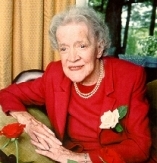The Pulitzer Prize-winning The Age of Innocence by Edith Wharton, looks at New York high society during the 1870s. Wharton focuses on the entrenched, but beset, ruling commercial elite of the Gilded Age. Theirs was a leisured life filled with teas and dinner parties, banquets and balls, openings and operas, art and literature, polo matches and yacht races, undergirded by rigid rules of propriety, ritual, and fashion. Change is in the air, however. The social mores of marriage, moral integrity, and female dependence are threatened. Commerce, not custom, is king. The old-fashioned age of innocence is passing. Published in 1920, the novel uses the vantage of time to conclude at the dawn of a new age, the Progressive Era of New Yorker Teddy Roosevelt, when a “new state” of “reforms and ‘movements,’ with fads and fetishes and frivolities” reigns.

